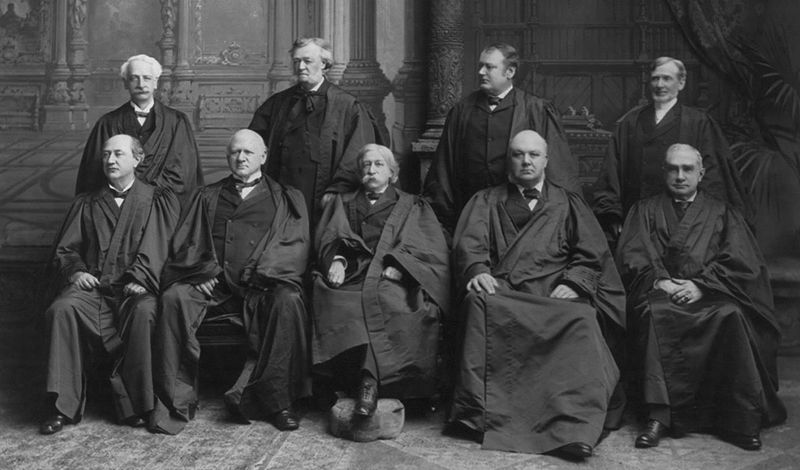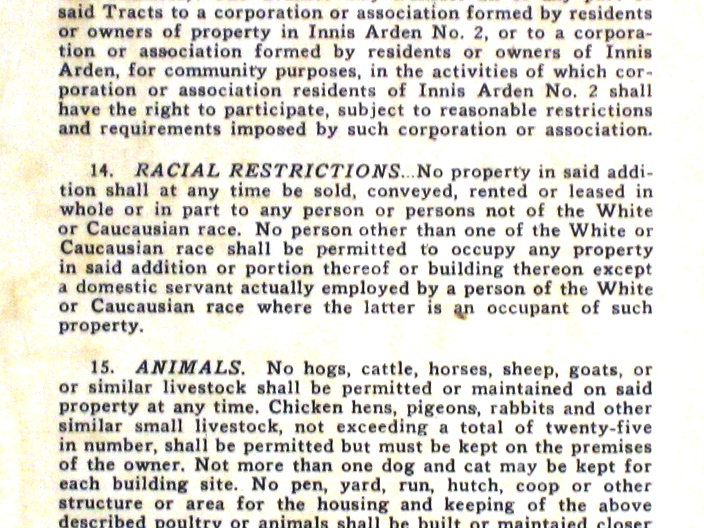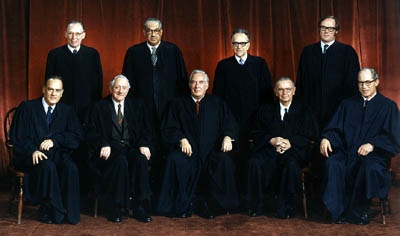10 Obscure Supreme Court Rulings That Changed Your Life
By:
The Supreme Court of the United States has issued dozens of decisions per year since it first commenced in 1790. A few are ingrained into the consciousness of every American, but far more live in dusty journals, cited only by lawyers and judges.
Some of those obscure cases have had a profound effect on the daily lives of Americans, codifying laws related to everything from commerce to citizenship to caffeine. Chances are you're allowed or not allowed to do something because of a Supreme Court ruling you've never heard of.
Here are a few of the many lesser-known Supreme Court rulings that have had lasting consequences on America and her people.
Chisholm v. Georgia (1793)
A South Carolina man sued Georgia on behalf of a deceased merchant to whom the state owed money, kicking off a chain of events that led to the rewriting of the Constitution. Chisholm held that the federal government had the right to hear cases between plaintiffs and states where they are not a citizen. The states, having none of this, ratified the 11th Amendment to override Chisholm. It was the first time SCOTUS involved itself in matters between the states and the federal government, setting centuries of precedent on both sides of the aisle.
United States v. Wong Kim Ark (1898)
 Wikimedia Commons/Public Domain - wikimedia.org
Wikimedia Commons/Public Domain - wikimedia.org
Wong Kim Ark was born in San Francisco to Chinese immigrants but was denied re-entry to the U.S., as officials believed he was a Chinese national, therefore subject to the Chinese Exclusion Act. Wong asserted that he was an American citizen because of the citizenship clause of the 14th Amendment. His victory in the Supreme Court codified that every person born in the United States acquires citizenship at birth — a precedent anti-immigration lawmakers are still trying to overturn.
United States v. 40 Barrels and 20 Kegs of Coca-Cola (1909)
Government agents seized the title amount of Coke under the new Pure Food and Drug Act, then sued to get the company to remove its caffeine, claiming it was harmful and addictive. The government also claimed that "Coca-Cola" was a false name, as the beverage contained neither coca leaves nor kola nuts. The Supreme Court ruled that the caffeine was not poisonous and that companies could use "misbranded" names as long as they weren't trying to be deceptive. Shockingly, the matter didn't end there, and the government sued Coca-Cola again. The company agreed to reduce the level of caffeine in its drinks – but not remove it altogether. That's why you can have your afternoon pick-me-up.
Schenck v. United States (1919)
The phrase "yelling fire in a crowded theater" is now part of our everyday lexicon to denote limits to free speech. It was first used by Justice Oliver Wendell Holmes in this case, which upheld the right of the government to prosecute activists who were encouraging young men not to register for the draft. It was the first time free speech had measurable limits applied.
Wickard v. Filburn (1942)
Ohio farmer Roscoe Filburn was fined for growing more wheat than Depression-era quotas allowed. He appealed, claiming the wheat was meant for personal use. From that bit of legal minutiae came a precedent establishing the power of the federal government to regulate business under the interstate commerce clause. Decades later, Wickard was used by both sides in the argument over the individual mandate of the Affordable Care Act, as well as the 2005 Gonzales v. Raich decision that allowed for federal prosecution of medical marijuana.
Smith v. Allwright (1944)
This critical but little-known voting rights decision opened the formerly all-white primary elections in Texas to voters of all races. It essentially kicked off the modern civil rights movement, setting into motion sweeping changes to voting rights across the country.
 Washington University/Public Domain - washington.edu
Washington University/Public Domain - washington.edu
Shelley v. Kraemer (1948)
A black family in St. Louis bought a house, unaware that the neighborhood had a racial covenant barring "people of the Negro or Mongolian Race" from owning property there. The family was sued to prevent them from moving in, and the case went all the way to the Supreme Court, which ruled that the enforcement of racial restrictions on real estate — a long-standing custom since the Civil War — was unconstitutional.
Cooper v. Aaron (1958)
In the aftermath of the much more famous Brown v. Board of Education decision, the School Board of Little Rock sued to suspend the desegregation plan that Brown had fostered. The Cooper decision shot them down and ruled that the states are bound by the decisions of the Supreme Court and cannot choose to ignore them if they disagree with them. This would have profound consequences for later decisions involving abortion rights, health care, and same-sex marriage.
 Wikimedia Commons/Public Domain - wikimedia.org
Wikimedia Commons/Public Domain - wikimedia.org
Gideon v. Wainwright (1963)
The famous Miranda decision in 1966 allowed defendants to know their rights upon arrest, but it was Gideon that paved the way to those rights. Florida drifter Clarence Gideon was arrested for theft and, being unable to afford an attorney, was forced to act as his own lawyer. After he was convicted, he appealed to the Supreme Court that his Sixth Amendment right to counsel had been violated. The Supreme Court unanimously decided in his favor, and Gideon set the stage for the public defender system of the U.S.
Phillips v. Martin Marietta Corp. (1971)
Ida Phillips applied for a job at manufacturing company Martin Marietta, only to be told they didn't hire women with preschool-age children, though the company did hire men with such children. She sued on the grounds that her rights under Title VII of the Civil Rights Act had been violated. Her suit became the first sex-discrimination case to reach the Supreme Court, which agreed with her.
